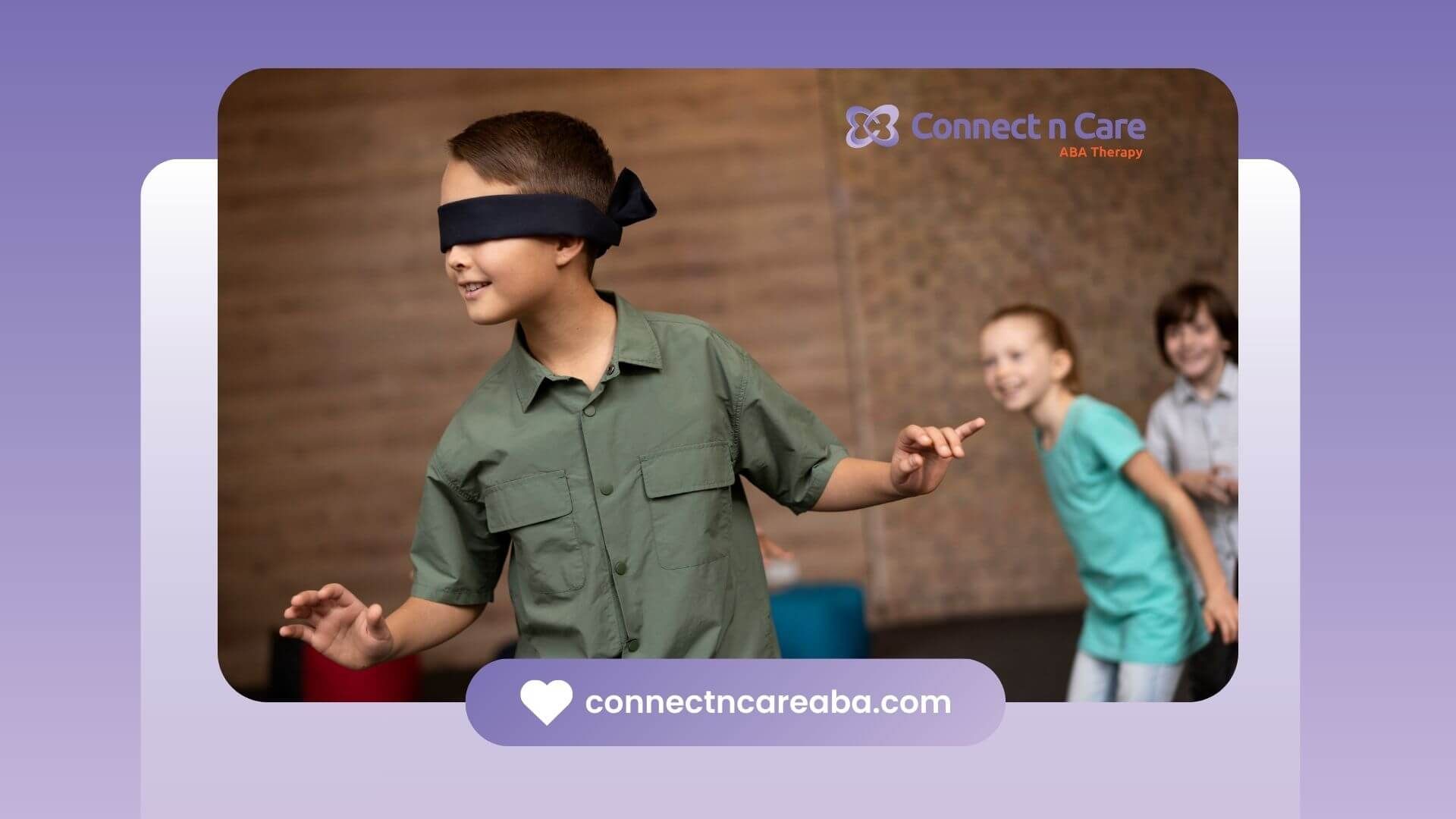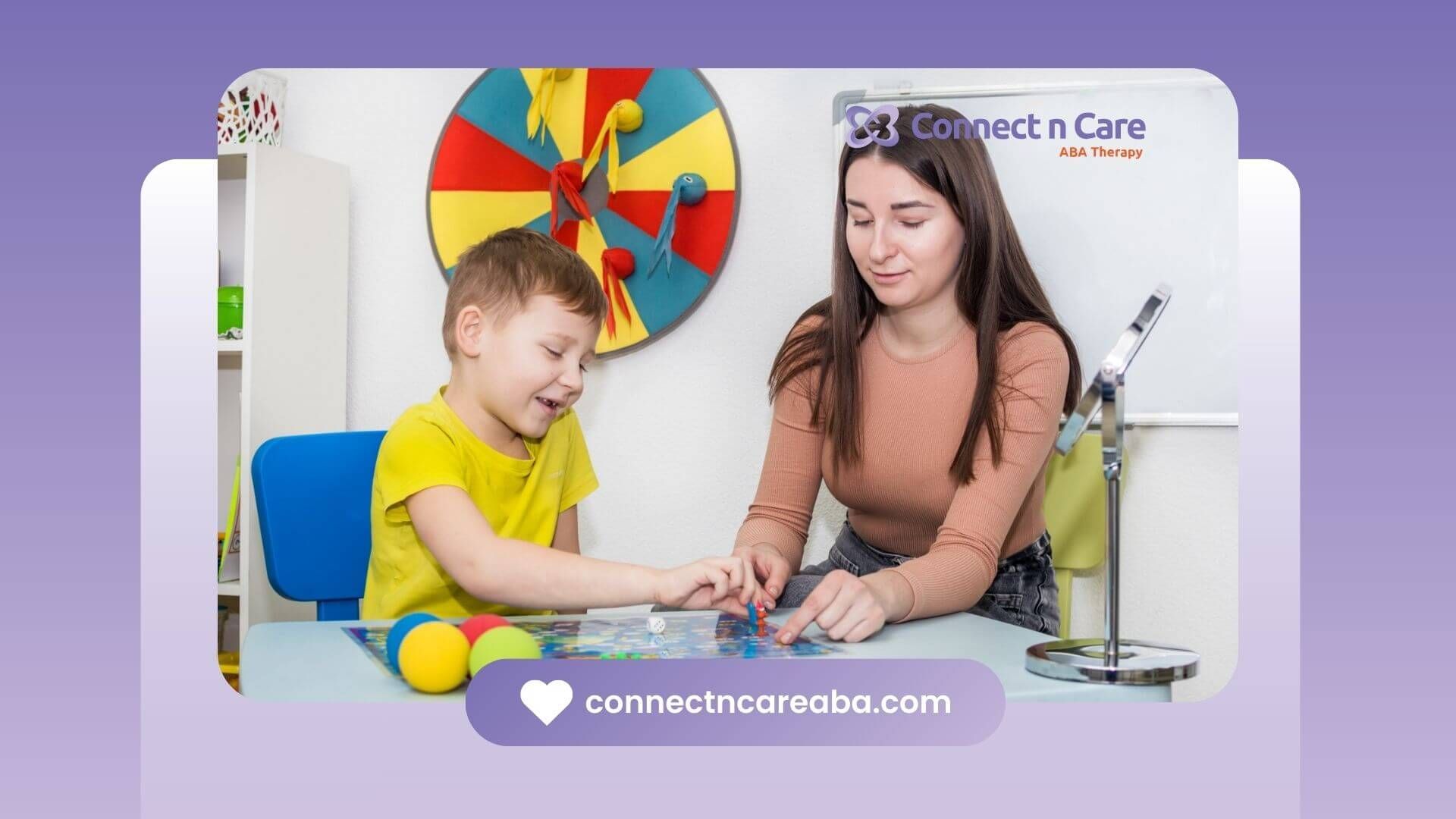The possible connection between the MMR vaccine, including the rubella vaccination, and autism spectrum disorder (ASD) has worried many parents for a long time. Misleading information and an old study, which has been taken back, suggested that the measles virus might play a role, increasing this fear. As a result, some parents are unsure or do not want to vaccinate their children. Still, many large scientific studies have shown that there is no link between vaccines and autism.
Understanding Autism and Its Causes
Autism spectrum disorder (ASD) is a complicated condition that affects how people develop. It makes social interaction, communication, and certain behaviors difficult. Most kids get diagnosed with an ASD diagnosis in early childhood, around the time they start talking and making friends. We still don’t know all the causes of autism, but many experts agree that different factors contribute to the number of children diagnosed with ASD as it develops.
Recent studies suggest that both genes and the environment are important in autism. These environmental factors may work together with genes during key times when the brain is developing. This can lead to the different ways autism shows up in people.
The Basics of Autism Spectrum Disorder (ASD)
Autism Spectrum Disorder (ASD) includes several conditions. These conditions present challenges in social skills, repetitive behaviors, speech, and nonverbal communication. Each person is affected differently, which is why it's called a "spectrum." Scientific studies show that there is no link between vaccination shots and autism. The work of Andrew Wakefield suggested a connection, but that has been proven wrong many times. Parents who worry about vaccination safety can look at strong evidence from trusted groups like the American Academy of Pediatrics and the CDC.
Genetic and Environmental Factors
While there is not just one cause of autism, scientific evidence shows that many genetic and environmental factors work together to influence its development and the symptoms of autism. Genetic factors play a significant role. For example, studies show that siblings of people with autism are more likely to have ASD. Twin studies also support the idea that genetics is important.
Besides genetic factors, some environmental factors are linked to a higher risk of nervous system-related ASD. These factors may affect a child's growth during important times, like during pregnancy or their first year of life. Although more research is necessary to find out how these factors work, some studies suggest that maternal infections, certain toxins, and complications during pregnancy can raise the chances of ASD.
Researchers are also looking into the role of the gut microbiome, which includes the billions of bacteria in our digestive systems, in ASD. Some studies reveal differences in the gut microbiome between autistic and non-autistic people. However, the exact meaning of these differences is still being explored.
The History of Immunization and Public Concerns
Vaccination programs have played a key role in lowering the number of infectious diseases around the world. They are seen as one of the best public health actions in history. For example, the complete removal of smallpox and the near-end of polio in many areas show how vaccines have saved many lives and stopped serious disabilities.
However, this success has made some people too relaxed, leading to unfounded worries about vaccine safety. Wrong information and not knowing how vaccines work have caused some people to hesitate about getting vaccinated. This can harm both individuals and communities.
Milestones in Vaccine Development
Vaccine development has come a long way since Edward Jenner created the smallpox vaccine in the late 1700s. Each step taken has played a big role in helping public health and saving lives. In the 1800s and early 1900s, scientists made vaccines for diseases like rabies, diphtheria, and tetanus. These vaccines offered good ways to stop these often-deadly diseases.
The Public Health Service in the United States was set up in 1912. This helped speed up the work on vaccines and how they were given out. Soon after, vaccines for pertussis, polio, and measles were made. This led to a big drop in these diseases, especially in children, in later years. The measles vaccine was especially important. It changed public health, making what was once a common childhood sickness rare in many places.
Even with great success in vaccination programs, some challenges still exist. We need to make sure everyone has fair access to vaccines around the world. There are also issues like misinformation and vaccine hesitancy that need to be tackled. Ongoing research and the development of better vaccines are very important to protect future generations from new and returning infectious diseases.
Origins of the Vaccine-Autism Controversy
The vaccine-autism debate started with a fake study in 1998. This study was published in The Lancet, a well-known medical journal. It was led by Andrew Wakefield from the Royal Free Hospital, a doctor from the UK who later had his medical license revoked. He claimed there was a connection between the MMR vaccination and autism in a small group of kids.
Wakefield's claims created a lot of fear. Many parents began to worry and stopped vaccinating their children with MMR in the United Kingdom and other places. The media played a big role in spreading this fear, often treating Wakefield's claims as facts, even though his study had a small number of participants, flawed methods, and no control group. Later investigations found major ethical issues and that Wakefield changed data. This led to The Lancet retracting the study in 2010.
Even after the study was withdrawn and many scientists showed evidence against Wakefield's claims, trust in vaccines was deeply harmed. This has long-lasting effects. Wakefield's fake research fueled the anti-vaccine movement and caused many people to hesitate about getting vaccines, which puts everyone at risk.
Debunking Myths: Vaccines and Autism Link
Years of serious scientific study have shown that there is no true link between vaccines and autism. The first study that started this issue has been proven false and removed because of ethical problems and data fiddling. Many later studies, which are much larger and better designed, have found no proof to support this claim.
The science community, along with top health groups around the world, agrees that vaccines are safe and work well. The good that comes from vaccinations is much greater than any risks, making it one of the best ways to keep individuals and communities safe from diseases that can be prevented.
Case Studies and Research Findings
To explore the possible link between vaccines and autism, researchers have done many large studies. These studies often included hundreds of thousands of children. They include case-control studies and cohort studies, but they have not found any proof that connects vaccines to autism.
Cohort studies are very helpful for looking into these kinds of relationships. These studies watch large groups of children, including nonautistic children, over a long time. They keep track of their vaccination status and how many develop autism. One important cohort study done in Denmark, supported by the National Board of Health, looked at over half a million children and found no link between the MMR vaccine and autism.
Other scientific studies, which examine when autism shows up, also disprove this idea regarding the development of autism. "Home movie" studies look at videos of children who later get diagnosed with autism, including unvaccinated children. These studies show that signs of autism often appear before the children get the MMR vaccine. This helps clear up the belief that the vaccine could cause autism.
Statements from Health Organizations
The main idea is clear. Many health groups, including the Immunization Safety Review Committee, agree that there is no link between vaccines and autism, despite concerns regarding the adverse effects of vaccines. This includes the American Academy of Pediatrics, the Centers for Disease Control and Prevention, and the World Health Organization. They all say vaccines are safe and effective.
These groups use strong scientific evidence and check vaccine safety very carefully. The Drug Administration (FDA) in the United States and other countries also keep a close eye on vaccine safety before and after they are used by people.
A lot of research shows that vaccines do not cause autism. Parents should check reliable sources and talk to their doctors for good information about vaccine safety and effectiveness.
The Role of Thimerosal in Vaccine Concerns
Thimerosal is a preservative that has mercury in it. It is used in some vaccines. It was targeted by the anti-vaccine movement, even though it has been safe for a long time. People worried that thimerosal could cause mercury poisoning and lead to autism.
It's important to know that thimerosal contains a type of mercury called ethylmercury. This kind is processed and removed by the body differently than methylmercury. Methylmercury is what you can find in some fish, and it can be dangerous in large amounts. Many studies have shown that the amounts of ethylmercury in vaccines are safe. They do not cause mercury poisoning or autism.
What is Thimerosal?
Thimerosal is a compound that contains mercury. It has been used as a preservative in vaccines and other medical products since the 1930s. Its main job is to stop harmful bacteria and fungi from growing. This keeps vaccines safe and effective, especially those in multi-dose vials.
Worries about thimerosal started in the late 1990s. People were concerned because it has mercury in it, and many mistakenly thought all types of mercury are just as toxic. This caused worries about a possible connection between thimerosal-containing vaccines (TCVs) and developmental issues, especially autism. The Drug Administration (FDA) and other regulatory agencies looked at the scientific evidence. They found no proof that thimerosal causes autism.
Still, to calm public fears and keep trust in vaccines, the US Food and Drug Administration (FDA) suggested, as a safety step, to cut down or remove thimerosal from childhood vaccines in 1999. Because of this, most childhood vaccines in the United States no longer have thimerosal, except for some multi-dose vials of flu vaccines.
Research on Thimerosal and Autism
Many studies have looked into whether thimerosal in vaccines could cause autism. These studies, such as population studies and controlled trials, often do not find proof to support this claim.
One big study in Denmark included over 500,000 kids. It showed no difference in autism risk between those who got thimerosal vaccines and those who got thimerosal-free ones, highlighting a lack of consistent evidence linking vaccines to autism. Other countries, like the United States, the United Kingdom, and Canada, have found similar results, as discussed in Am J Prev Med.
Even though there is strong scientific evidence showing no link between thimerosal and autism, the debate continues. This ongoing confusion affects the anti-vaccine movement and makes some people hesitant about vaccines. It is important to keep sharing true, evidence-based information with everyone.
The Importance of Vaccination
Vaccines are very important for public health. They help to keep people and communities safe from diseases that can be prevented. Vaccines do this by teaching the immune system to recognize and fight off certain viruses and bacteria. This helps stop people from getting sick and lowers the chances of spreading contagious diseases. Regular vaccinations for children have greatly cut down cases of illnesses like measles, mumps, rubella, polio, and diphtheria. This has saved many lives and helped prevent long-term disabilities.
Vaccination is not just beneficial for individuals. It also helps the community as a whole. When many people get vaccinated, it creates something called herd immunity. This means that even those who cannot get vaccinated, like babies, pregnant women, and people with some medical issues, are also protected. This happens because fewer people can spread the disease when most of the population is vaccinated.
Herd Immunity Explained
Herd immunity is also called community immunity. It is a type of indirect protection from diseases. This happens when enough people in a population are immune to a specific disease. People can gain immunity through vaccination or previous infection. When many people are immune, the spread of disease slows down.
This type of protection is very important for those who cannot get vaccinated for health reasons. This includes people with weak immune systems, allergies to vaccine ingredients, or specific health issues. Herd immunity acts like a shield. It helps to keep the most vulnerable people safe.
The level needed for herd immunity depends on the disease and how fast it spreads. For highly contagious diseases like measles, the level is about 95%. This means that 95% of the people need to be immune to stop outbreaks. It is very important to keep vaccination rates high, especially for the measles vaccine virus. This helps to maintain herd immunity and protect communities from diseases that can be prevented.
Vaccines and Child Health
Childhood vaccines are a big step forward in preventing disease, especially for children during their first twelve months of age. They help protect kids from serious and sometimes deadly diseases. These vaccines work by putting a weak or inactive form of a virus or bacteria into the body. This helps the immune system get ready to fight off the illness without making the child sick.
Vaccines keep children safe from many infectious diseases. These include measles, mumps, rubella, polio, diphtheria, tetanus, whooping cough, Hib, hepatitis A and B, chickenpox, and rotavirus. These diseases can lead to serious problems, like pneumonia, brain swelling, deafness, or even death, especially for young children with weaker immune systems.
The good things about childhood vaccines go beyond just preventing illness. By lowering the number of cases, vaccines also help cut down costs related to healthcare, lost work for parents, and ongoing care for those with complications. Vaccines are safe, effective, and very important for the health and wellness of children.
Addressing Parental Concerns and Questions
It's normal for parents to have questions and worries about vaccines. The health and safety of their kids is very important. To make good choices about health care, they need reliable and true information. There is so much information, and also some misinformation, online. This can make it hard to tell which sources are trustworthy and which are spreading fears without basis.
Parents should have open and honest talks with their child's doctor. The doctor can give verified information, answer specific questions, and help them make well-informed choices about vaccines. Trusting the doctor and building a strong relationship is key for making the best health care decisions for their child.
How to Approach Vaccine Hesitancy
Vaccine hesitancy means that some people are hesitant or refuse to get vaccinated even when vaccines are available. This is a complicated issue. Several factors cause it, such as worries about vaccine safety, false information shared on social media, and not trusting doctors or health organizations. To tackle vaccine hesitancy, we need to approach it from many sides. We should focus on understanding people, communicating openly, and having respectful talks.
Healthcare providers have a key role. They should listen to parents' worries, give clear and correct facts about vaccine safety and effectiveness, and correct any misinformation with solid evidence. It's important to build trust and kindness with parents. This helps in creating a welcoming place where they can talk about their worries freely.
Good communication in healthcare is critical to fighting vaccine hesitancy and encouraging people to accept vaccines. This means using simple language that fits the audience, tackling misinformation ahead of time, and sharing real-life stories of those affected by diseases that vaccines can prevent.
Resources for Further Education
For parents looking for reliable info about vaccines, there are several good resources. The Centers for Disease Control and Prevention (CDC) website is great. It has detailed information about vaccines, their safety, and the immunization schedule for both kids and adults.
Another trusted source is the American Academy of Pediatrics (AAP). They give fact-based advice on many health topics, including vaccinations. The AAP website has articles, videos, and other resources to help parents make the best choices for their child's health.
Also, places focused on vaccine education, like the Vaccine Education Center at the Children’s Hospital of Philadelphia, offer helpful resources. They have fact sheets, frequently asked questions, and information that helps to clear up common myths about vaccines. Parents should check out these resources and talk to their child's doctor to learn more about the latest scientific evidence and recommendations on vaccines.
Understanding the facts about immunization shots and autism can be overwhelming for parents, but finding the right support makes all the difference. If you’re exploring autism treatment therapy options, working with a trusted provider can help you navigate your child’s unique needs with confidence. Take the first step toward tailored care and meaningful progress today!
Conclusion
In conclusion, it is important for parents to understand the facts about vaccines and autism. This helps them make the right choices. It is essential to clear up the myths about a link between vaccines and autism. Research and health organizations' statements can help with this. We should look at the role of thimerosal in vaccines and its effects. In the end, getting vaccinated protects personal health and helps the overall community. We need to listen to parents’ worries and offer trustworthy information. This can ease fears and keep children safe with vaccines. Stay informed, consult reliable sources, and make choices that protect everyone’s health.
Connect n Care ABA in North Carolina is committed to empowering parents with accurate information and compassionate care. Their expert team specializes in supporting families navigating concerns about immunization shots and autism, offering evidence-based guidance to help you make informed decisions. Ready to partner with a team that prioritizes your child’s well-being? Reach out to Connect n Care ABA today for trusted advice and support!
Frequently Asked Questions
What is the current consensus on vaccines and autism?
The agreement among scientists is strong: no vaccine, including the MMR vaccine, is related to autism diagnoses, including findings related to MMR vaccine status, even among children with older siblings. This finding comes from many years of thorough scientific evidence gathered from many studies with millions of children around the world.
Are there alternatives to vaccines containing thimerosal?
Yes, most childhood vaccines in the United States do not have thimerosal or only have very small amounts. The Drug Administration (FDA) makes sure all vaccine choices for kids meet strict safety and effectiveness standards.
How can parents make informed decisions about vaccination?
Parents can make good choices about their child's vaccines. They can do this by checking trustworthy sources like the CDC and AAP. It is also helpful to talk to a doctor for kids and share any questions or worries openly.









